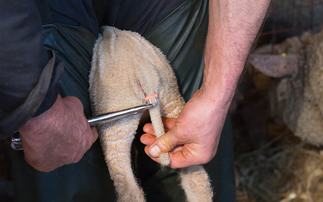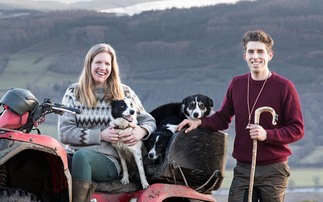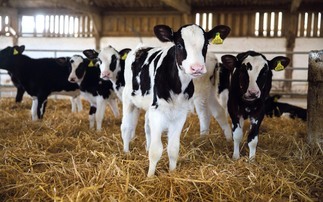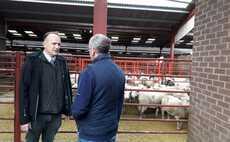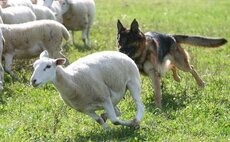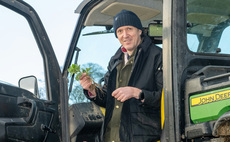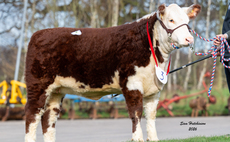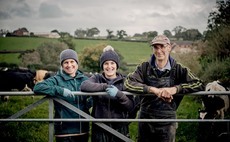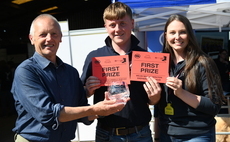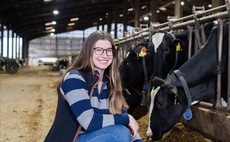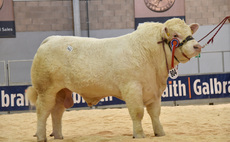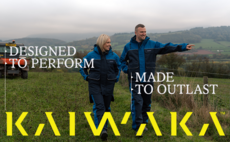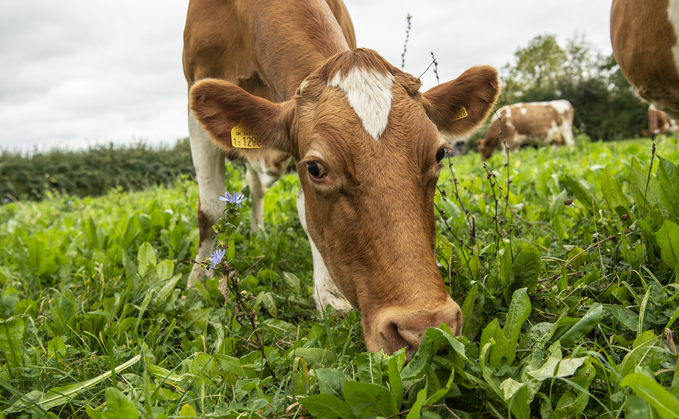
Defra confirmed a single case of bluetongue had been detected at a farm in Kent
For farm holdings within the TCZ, animal movements will not be licensed within or out of the zone, until Defra has a better assessment of the disease situation.
However, specific licences can be applied for if movements deemed as urgent due to a genuine welfare need, this is defined as where animal welfare is, or is likely to be, significantly compromised.
To apply, you must contact the APHA outbreak licencing team: [email protected].
Dr Joe Henry, chair of the Ruminant Health & Welfare bluetongue working group and president of the Sheep Veterinary Society, says: "This new emerging strain has been spreading rapidly in Europe in recent months, and with no current vaccine for this BTV-3 strain, we are pleading with farmers to remain vigilant.
"Our advice and recommendations remain centred around supporting affected farmers as quickly as possible, with the main focus on surveillance.
"Farmers need to beware when buying or moving animals in, take action to report any suspicious clinical signs and prioritise biosecurity, and always, remain vigilant."
Applying for movement licences
For farmers applying for movement licences, Dr Henry states that all applications are reviewed and assessed on an individual basis.
He says: "Depending on the nature of the application and the number of applications, you may not have a response for five days. It is recommended that if you wish to move animals, you should apply promptly as soon as it is indicated that a licence is or likely to become available."
Bluetongue has been confirmed in a single animal near Canterbury, Canterbury, Kent. Livestock keepers must remain vigilant and follow the restrictions on animal movements. More info is available on https://t.co/Ei44zogGSt at: https://t.co/k5vo0hTbup#Bluetongue #LivestockKeepers pic.twitter.com/KcNaxy66mp
— APHA (@APHAgovuk) November 11, 2023
See also: Farmers urged to be vigilant for new strain of bluetongue virus
Chief Veterinary Officer Christine Middlemiss reinforced the need for farmers to remain alert to the risks associated with the disease and confirmed the cow had not been imported to the UK.
"Bluetongue does not pose a threat to human health or food safety, but the disease can impact livestock farms, and cause productivity issues," Ms Middlemiss added.
"This detection is an example of our robust disease surveillance procedures in action and it is also a clear reminder for farmers the disease remains a threat, despite coming towards the end of the midge activity season."
Defra and APHA said bluetongue - an insect-borne viral disease which affects cows, goats, sheep and llamas - could spread to the UK with the South and East coasts of England at ‘highest risk'.
APHA said the disease could lead to reduced milk yield and, in the most severe cases, death for infected animals.
See also: Avian flu confirmed at Lincolnshire farm
Despite the disease not having an impact on people or food safety, APHA warned outbreaks could result in ‘prolonged animal movement and trade restrictions'.
Bluetongue has been reported in a number of European countries including Belgium, Germany, France and the Netherlands with three reported types of bluetongue currently in circulation including BTV-3, BTV-4 and BTV-8.
Between September 29 to October 18, Defra said 2,259 cases had been reported in the Netherlands.
Germany had lost its BTV free status on October 13 when BTV-3 was detected on a farm in North Rhine-Westphalia which housed 570 sheep.
The whole territory of mainland France has declared a BTV restriction zone which means susceptible livestock ‘cannot be moved to Great Britain without prior vaccination for the circulating BTV-4 and BTV-8 serotypes'.
See also: Bovine TB compensation is unsustainable, says Wales' Rural Affairs Minister
Defra said strict rules on the movement of livestock from regions affected by bluetongue have been initiated with farmers reminded animals imported from these regions ‘must be accompanied by the relevant paperwork to clearly show they meet certain conditions designed to reduce disease risk, such as correct vaccination'.
The latest information on availability of individual export health certificates can be found here.









